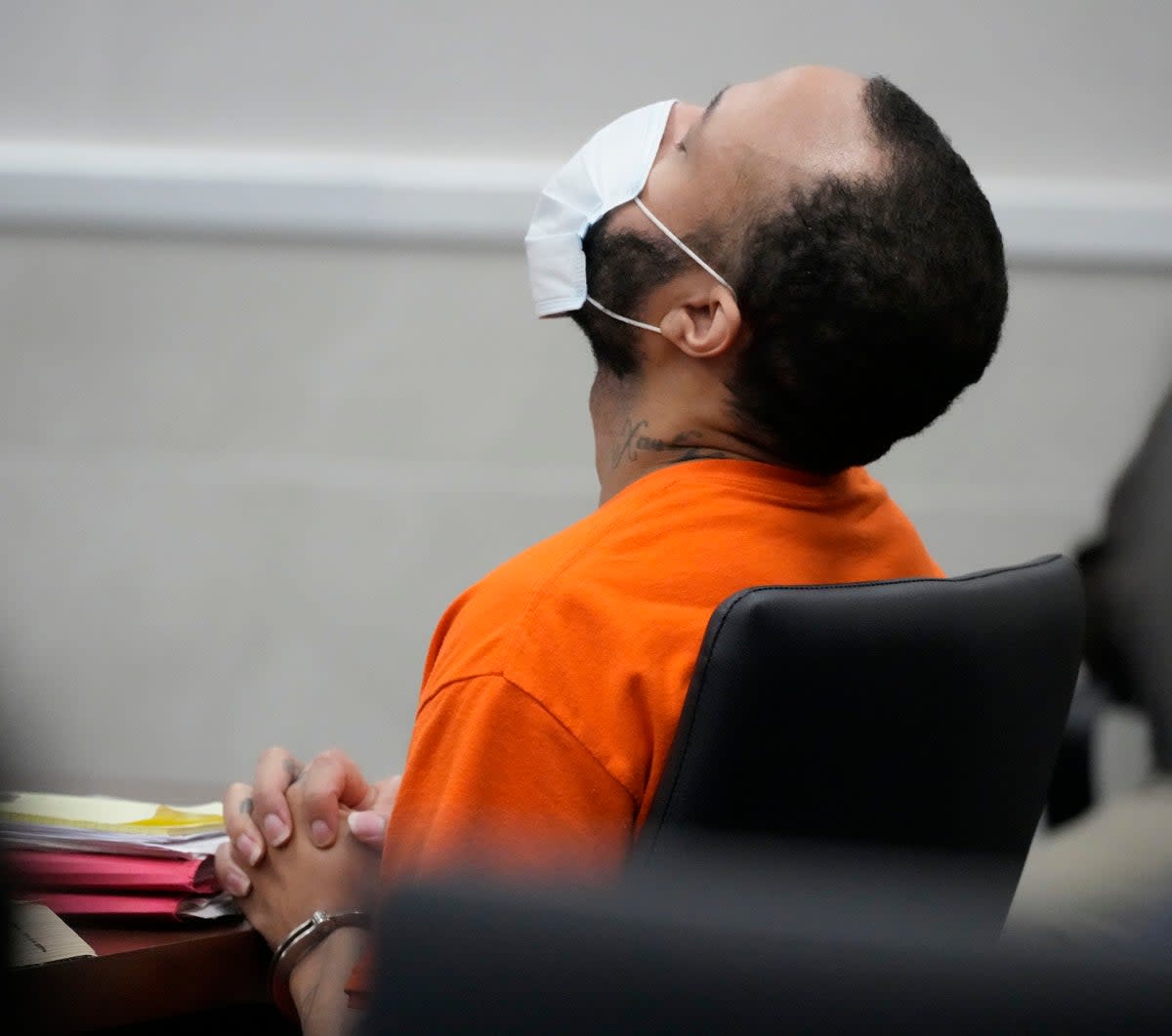Waukesha parade killer Darrell Brooks derails sentencing by refusing to accept result in two-hour speech

Darrell Brooks derailed his sentencing during a convoluted speech on Wednesday.
Waukesha County Circuit Judge Jennifer Dorow asked Brooks four times whether he had any sentencing recommendations well into a two-hour-long monologue about how he had “covered his life to Christ” after killing six people and injuring more than 60 others during the parade last year.
Each time, Brooks delayed the proceeding by sharing rambling thoughts and failing to answer Judge Dorow’s questions. When asked if he understood the difference between serving the six expected life sentences consecutively or concurrently, Brooks said that “he can’t live a million years.”
He was convicted on 26 October of 76 charges, including six counts of murder that carry one life sentence each. He faces an additional 17 and a half years for each of his 61 counts of recklessly endangering safety.
Brooks attempted to raise concerns about his mental health, but Judge Dorow shut down his remarks, citing four previous reports from experts that Brooks is fully competent to stand trial.
“I am not here to debate that you have a history [of mentally ill”... trauma, emotional pain,” Ms Dorow said. “I have read not one, not two, not three but four reports from experts in this field that we know as forensic psychology and psychiatry ... individuals who have an expertise in evaluating a plea of not guilty by reason of mental disease or defect because I don’t want there to be any doubt in my sentencing that I considered that.”
After three people spoke on his behalf on Wednesday, Brooks hinted at a glimpse of remorse, but ultimately dodged taking accountability for the crime and said that he “was sorry” that the victims “couldn’t see his remorse” and “count the tears that he had cried.”
“I want those who lost loved ones [..] the community of Waukesha to know that not only am I sorry for what happened,” Brooks began. “I am sorry that you cannot see what’s truly in my heart, that you cannot see the remorse that I have [and] that you cannot count all the tears that I’ve dropped.”
Brooks maintained a tone of self-pity throughout his speech. He attempted to rationalise his actions, saying he had faced great challenges in life, such as being abandoned by his father, “seeing his mom work three jobs,” and losing his sister.
“That’s a question I struggle with myself. The why, the how. How could life get so far away from what it should be?” he said. “Regardless of what anybody might think about me, about who I am, about my family, about my beliefs. God knows who I am.”
This is a developing story ... Check again for updates.

